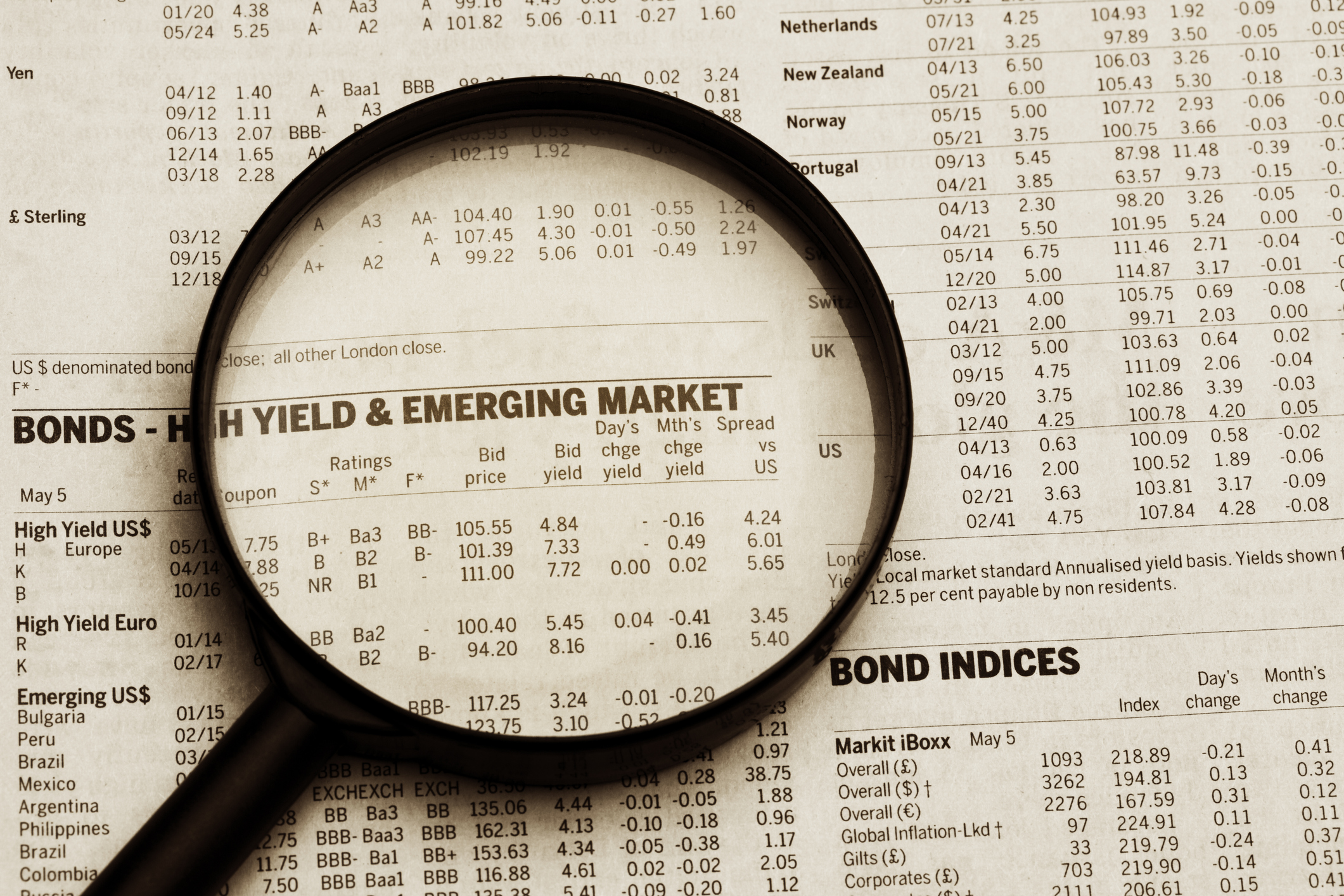How to Find the Best Emerging Market Stocks
Emerging market stocks often get overlooked, but adding them to your portfolio allows for diversification and potentially big returns. Just tread lightly.


Profit and prosper with the best of Kiplinger's advice on investing, taxes, retirement, personal finance and much more. Delivered daily. Enter your email in the box and click Sign Me Up.
You are now subscribed
Your newsletter sign-up was successful
Want to add more newsletters?

Delivered daily
Kiplinger Today
Profit and prosper with the best of Kiplinger's advice on investing, taxes, retirement, personal finance and much more delivered daily. Smart money moves start here.

Sent five days a week
Kiplinger A Step Ahead
Get practical help to make better financial decisions in your everyday life, from spending to savings on top deals.

Delivered daily
Kiplinger Closing Bell
Get today's biggest financial and investing headlines delivered to your inbox every day the U.S. stock market is open.

Sent twice a week
Kiplinger Adviser Intel
Financial pros across the country share best practices and fresh tactics to preserve and grow your wealth.

Delivered weekly
Kiplinger Tax Tips
Trim your federal and state tax bills with practical tax-planning and tax-cutting strategies.

Sent twice a week
Kiplinger Retirement Tips
Your twice-a-week guide to planning and enjoying a financially secure and richly rewarding retirement

Sent bimonthly.
Kiplinger Adviser Angle
Insights for advisers, wealth managers and other financial professionals.

Sent twice a week
Kiplinger Investing Weekly
Your twice-a-week roundup of promising stocks, funds, companies and industries you should consider, ones you should avoid, and why.

Sent weekly for six weeks
Kiplinger Invest for Retirement
Your step-by-step six-part series on how to invest for retirement, from devising a successful strategy to exactly which investments to choose.
Emerging market stocks often get overlooked. Indeed, the U.S. stock market has long been one of the world's best sources for investment growth, and there's little reason to believe that will change going forward.
But it's important for investors to know that it's not the only place to stash your dollars if you want them to blossom.
Emerging markets (EMs) are a one-two punch, offering both the ability to spread out risk geographically, as well as the potential for explosive returns. But they carry plenty of risks all their own – sometimes too many, and too much, for more cautious investors. So it's best to know what you're getting into before you take the plunge into international waters.
Today, we'll discuss emerging markets, including what they are, why they have a place in certain portfolios, and what you should consider as you're seeking out the best emerging market stocks.

What are emerging markets?
Generally speaking, the world's countries are divvied up into three categories based on how mature their economies are. From most mature to least, they are:
- Developed markets
- Emerging markets
- Frontier markets
Curiously, there is no single official definition for what constitutes an emerging market. Indeed, in many cases, developed markets are defined by specific criteria, and EMs are simply defined as not being a developed market.
But emerging markets tend to feature several similar traits.
Most noteworthy is greater economic growth than their developed peers. Indeed, more quickly expanding gross domestic product (GDP) is the primary allure. This is largely because these nations are in much earlier stages of industrialization than developed countries such as the U.S., the U.K. and Japan – and thus they have much more room for rapid improvement in unemployment, disposable income and other critical economic metrics.
High value can often come into play, too. These companies usually aren't as well-covered by the media or analyst community as developed market stocks – and as a result, can become significantly overpriced.
"We believe emerging markets equities are becoming ever more attractive as it remains one of the most mispriced asset classes globally, with valuation discounts relative to developed markets and U.S. equities hovering near 30% and 40%, respectively," Lazard Asset Management says in its 2024 emerging market outlook. "While many parts of EM equity remain markedly under-owned despite their low cost, we expect earnings growth to be higher in EM in 2024 compared to the developed world, driven to great extent by emerging Asia and information technology companies."
And, of course, emerging markets represent another way that investors can add diversification to their portfolios: geographically. Rather than putting all of their eggs in a U.S. basket, they can buy emerging market stocks to hedge against slow periods for American markets while still accessing high-growth opportunities.
These roses frequently boast thorns, however. The risks are many and varied, including (but hardly limited to) unstable governments and political unrest, unregulated markets, volatile currencies and poor monetary policies.

Noteworthy emerging markets
While there are literally dozens of emerging markets, investors have long been enamored with a group called the BRICS: Brazil, Russia, India, China and South Africa.
These five countries' collective GDP actually began to surpass the G7 (Canada, France, Germany, Italy, Japan, the U.K. and the U.S.) in 2020. And that lead has only widened since, with the BRICS representing 32% of global GDP vs the G7's 30%.
The BRICS became more than the BRICS this year, however. As of January 1, the economic bloc had expanded to include Egypt, Ethiopia, Iran, Saudi Arabia and the United Arab Emirates (UAE).

How to find the best emerging market stocks
Trying to pluck a few names out of the emerging market hat, which carries many thousands of stocks worldwide, is no small task.
It goes without saying that you'll want to start by evaluating these stocks much like you would any other U.S. name: valuation, growth potential, balance sheet health, cash flow generation and so on. But there are a few other considerations as you seek out the best emerging market stocks.
Do they trade as an ADR on major U.S. exchanges? Unless your portfolio is run through a broker with access to foreign bourses, you'll largely be limited to emerging market stocks that trade as American depositary receipts (ADRs). These are certificates issued by a U.S. bank that represents stock of a foreign country – but they trade just like regular ol' U.S. stocks. Importantly, ADRs must adhere to the requirements of whatever exchange they list on, so if they list with the New York Stock Exchange or Nasdaq, that communicates a higher level of accounting and transparency than might be required in their home markets.
The country they're based in: U.S. stocks can be pushed and pulled by the state of the U.S. economy, and the same relationship exists between emerging market companies and the nations in which they're domiciled. So when seeking out the best stocks to buy, you'll want to know the growth prospects and risks not just of the individual equity itself, but its home nation as well.
Individual stocks vs ETFs. Researching individual equities is difficult enough when you're dealing with U.S. stocks – and emerging market stocks add an additional layer or two of complexity. Also, given the relatively higher risk of investing in companies from emerging markets, you might be best off scattering that risk across hundreds or thousands of stocks via emerging market ETFs (exchange-traded funds).
If you want access to stocks from a number of emerging markets, you could consider broad-based EM ETFs such as the SPDR Portfolio Emerging Markets ETF (SPEM), Vanguard FTSE Emerging Markets ETF (VWO) or iShares Core MSCI Emerging Markets ETF (IEMG). However, there's also a wealth of single-country EM funds, including the iShares MSCI China ETF (MCHI), WisdomTree India Earnings Fund (EPI) and Franklin FTSE Brazil ETF (FLBR).
Related content
Profit and prosper with the best of Kiplinger's advice on investing, taxes, retirement, personal finance and much more. Delivered daily. Enter your email in the box and click Sign Me Up.
Kyle Woodley is the Editor-in-Chief of WealthUp, a site dedicated to improving the personal finances and financial literacy of people of all ages. He also writes the weekly The Weekend Tea newsletter, which covers both news and analysis about spending, saving, investing, the economy and more.
Kyle was previously the Senior Investing Editor for Kiplinger.com, and the Managing Editor for InvestorPlace.com before that. His work has appeared in several outlets, including Yahoo! Finance, MSN Money, Barchart, The Globe & Mail and the Nasdaq. He also has appeared as a guest on Fox Business Network and Money Radio, among other shows and podcasts, and he has been quoted in several outlets, including MarketWatch, Vice and Univision. He is a proud graduate of The Ohio State University, where he earned a BA in journalism.
You can check out his thoughts on the markets (and more) at @KyleWoodley.
-
 Dow Leads in Mixed Session on Amgen Earnings: Stock Market Today
Dow Leads in Mixed Session on Amgen Earnings: Stock Market TodayThe rest of Wall Street struggled as Advanced Micro Devices earnings caused a chip-stock sell-off.
-
 How to Watch the 2026 Winter Olympics Without Overpaying
How to Watch the 2026 Winter Olympics Without OverpayingHere’s how to stream the 2026 Winter Olympics live, including low-cost viewing options, Peacock access and ways to catch your favorite athletes and events from anywhere.
-
 Here’s How to Stream the Super Bowl for Less
Here’s How to Stream the Super Bowl for LessWe'll show you the least expensive ways to stream football's biggest event.
-
 Why Wells Fargo's Revenue Miss Isn't Worrying Wall Street
Why Wells Fargo's Revenue Miss Isn't Worrying Wall StreetWells Fargo is one of the best S&P 500 stocks Wednesday even after the big bank's top-line miss. Here's what you need to know.
-
 Constellation Energy Stock Soars on Its $26 Billion Buy. Here's Why Wall Street Likes the Deal
Constellation Energy Stock Soars on Its $26 Billion Buy. Here's Why Wall Street Likes the DealConstellation Energy is one of the best S&P 500 stocks Friday after the utility said it will buy Calpine in a cash-and-stock deal valued at $26 billion.
-
 The 24 Cheapest Places To Retire in the US
The 24 Cheapest Places To Retire in the USWhen you're trying to balance a fixed income with an enjoyable retirement, the cost of living is a crucial factor to consider. Is your city the best?
-
 What Scott Bessent's Treasury Secretary Nomination Means for Investors
What Scott Bessent's Treasury Secretary Nomination Means for InvestorsMarkets are reacting positively to Trump's nomination of Scott Bessent for Treasury secretary. Here's why.
-
 TJX Stock: Wall Street Stays Bullish After Earnings
TJX Stock: Wall Street Stays Bullish After EarningsTJX stock is trading lower Wednesday despite the TJ Maxx owner's beat-and-raise quarter, but analysts aren't worried. Here's why.
-
 Cisco Stock: Why Wall Street Is Bullish After Earnings
Cisco Stock: Why Wall Street Is Bullish After EarningsCisco stock is lower Thursday despite the tech giant's beat-and-raise quarter, but analysts aren't concerned. Here's what you need to know.
-
 Apple Stock Slips After Earnings. Wall Street Isn't Worried
Apple Stock Slips After Earnings. Wall Street Isn't WorriedApple stock is trading lower Friday despite the iPhone maker beating expectations for its fiscal fourth quarter, but analysts are still bullish.
-
 Tesla's Robotaxi Event: What Wall Street Expects
Tesla's Robotaxi Event: What Wall Street ExpectsTesla’s robotaxi event kicks off next week. Here’s what Wall Street expects to see and how analysts feel about the stock heading into the event.

